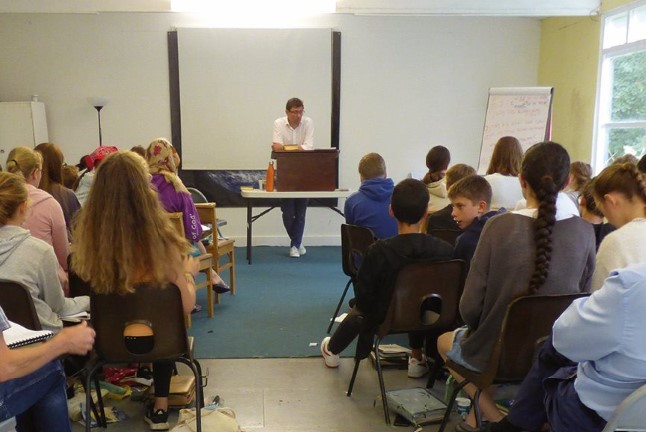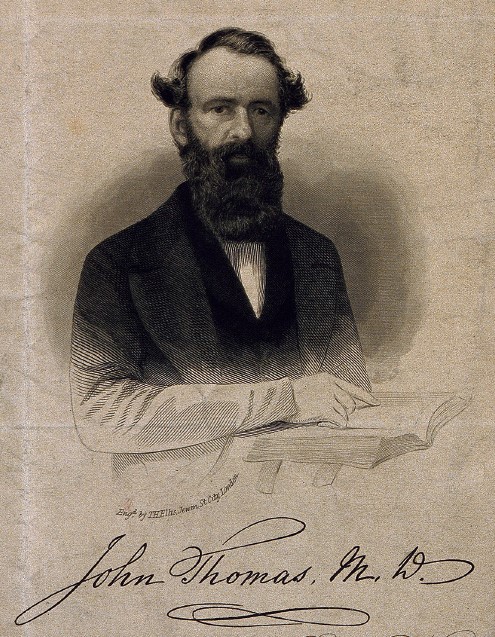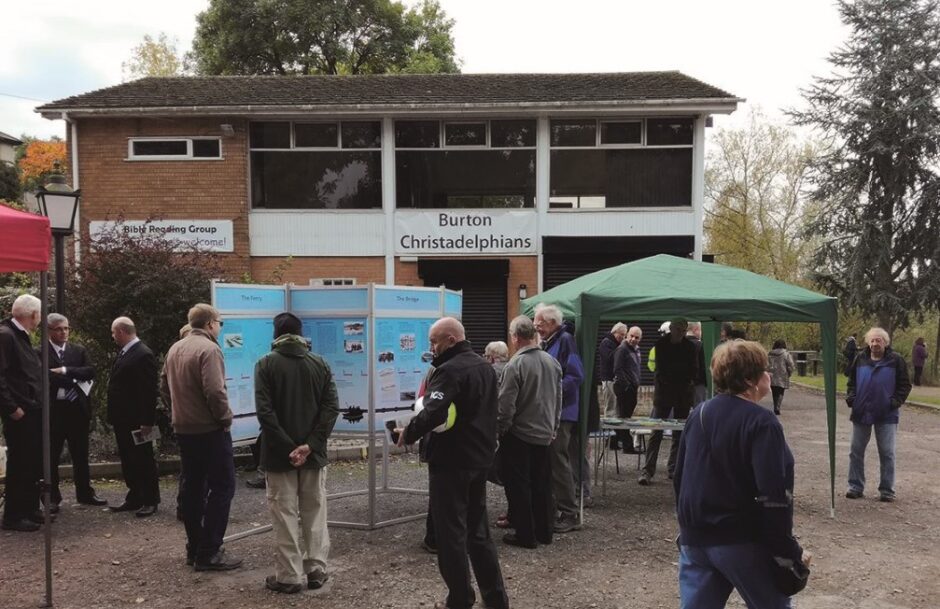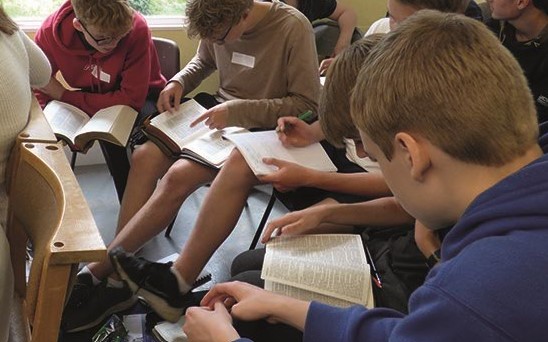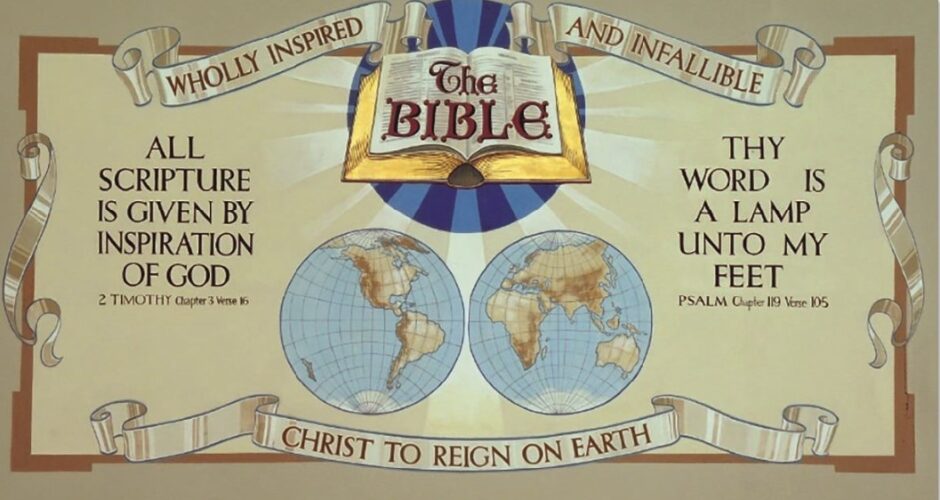GLAD TIDINGS is published and distributed by the Christadelphians, a group of Christians who try to base their beliefs and practices wholly on the Bible. We regard the Bible as God’s word and try our best to share its message and put it into practice. This is our priority, and the reason for producing the magazine. However, people do often want to know more about the Christadelphian community—not least, where that unusual name came from!
The History
Christadelphians are passionate about understanding and believing the Gospel as preached by Jesus and his apostles, and as laid out across the whole Bible. Looking back through history, we can trace groups of people who shared some or all of our beliefs right back to the First Century.
The community as it exists today first appeared in the mid 19th Century, as a group of people who sought to restore Christianity to its original form with the Bible as the only source of authority. One of them was a doctor called John Thomas, who was convinced that the teachings he was encountering among Christians generally did not truly represent the faith of Christ and his apostles. He embarked upon a conscientious study of the Bible and eventually came to an understanding of the ‘good news about the kingdom of God and the name of Jesus Christ’ (Acts 8:12). This was different in a number of important points from that of the mainstream churches and other religious sects. Thomas’s distinctive views are held by Christadelphians today—however we must stress that the authority for these teachings lies solely in the Bible. The books and other writings of our members, then and now, are valuable helps but NOT inspired by God.
In those early days, Thomas and his friends found that to preserve their identity they had to give themselves a name. “Christadelphians” was chosen from the Greek words Christos and adelphoi, which mean literally “Christ’s brothers”—or “brothers (and of course sisters) in Christ”. This name has been used to distinguish the community for more than 140 years.
Whilst the name was coined relatively recently, it reflects how First Century Christians addressed each other, for example:
Tychicus will tell you all about my activities. He is a beloved brother and faithful minister and fellow servant in the Lord (Colossians 4:7).
I commend to you our sister Phoebe, a servant of the church at Cenchreae (Romans 16:1).
So Christadelphians regard themselves as a worldwide “brotherhood”, a community of believers who share a common faith in Jesus Christ and a commitment to living according to the teachings of the Bible.
The Community Today
Christadelphians are found throughout the world, from Albania to Zimbabwe alphabetically and on all the inhabited continents. We are ordinary people from many walks of life, bound together by our faith.
Congregations often call themselves “ecclesias”. This comes from the Greek word which is translated as “church” in English, and means a congregation of believers. We use the word “ecclesia” because nowadays people tend to think of a “church” as a building. Christadelphians meet in houses, rented halls or their own halls, depending on their circumstances. Again, this reflects First Century practice: ‘The church in their house’ (Romans 16:5, 1 Corinthians 16:19, Colossians 4:15).
We do not have a centralized organizational structure, and individual members are encouraged to study the Bible and come to their own conclusions about its teachings. Similarly, Christadelphians do not have a paid clergy—we rely on volunteers for the work we undertake. We have organizations which operate across ecclesias and even countries to enable preaching and care for our members, especially where they are geographically isolated.
The care of the infirm and the elderly is seen as a pressing need: we have several care homes in various countries. Voluntary contributions are made to help individual members in need, and to support wider international charity needs. You can read about this combination of practical support and preaching being established in Acts 6:1–7. Of course, the challenges of the 21st Century differ in detail from First Century Jerusalem, but the principles are the same.
A number of magazines are published, including Glad Tidings (since 1884) whose primary purpose is preaching the Gospel, and The Christadelphian (since 1864) which is for the benefit of members of the community. It provides informative articles and contains items of news from the ecclesias worldwide. Guides and books are also produced for the use of members and their friends.
Christadelphians are a community without the trappings of elaborate buildings, priests or icons, but with a deep respect for God’s Word and a strong sense of family and fellowship.
Our Beliefs
As we stated at the outset, the beliefs of the Christadelphians are more important than our organization. These are distinct from other churches, and reflect the faith of the First Century apostles. Jesus came ‘proclaiming the gospel of God’ (Mark 1:14), and at the end of the historical account of his work, Paul was still ‘proclaiming the kingdom of God and teaching about the Lord Jesus Christ.’ (Acts 28:31).
The Bible teaches that Jesus, the Son of God, died as a sacrifice so that we can be part of God’s family. He is in heaven now and will soon return to set up God’s Kingdom here on earth. Those who have listened to and believed the Gospel, then responded by being baptised and trying to copy Jesus’ way of life, will live for ever with him, in a perfect world.
For a fuller description, visit the GladTidings website at http://gladtidingsmagazine.org/ who-are-we/.
What Now?
Hopefully this answers any questions you might have about the community behind Glad Tidings. If you have more, please mail us at editor@gladtidingsmagazine.org.
More importantly, please keep reading your Bible, and we would be delighted if Glad Tidings helps you in this. God is offering you a wonderful peace of mind today, and a real hope of eternal life in His Kingdom. Don’t miss it!
Andrew Hale


